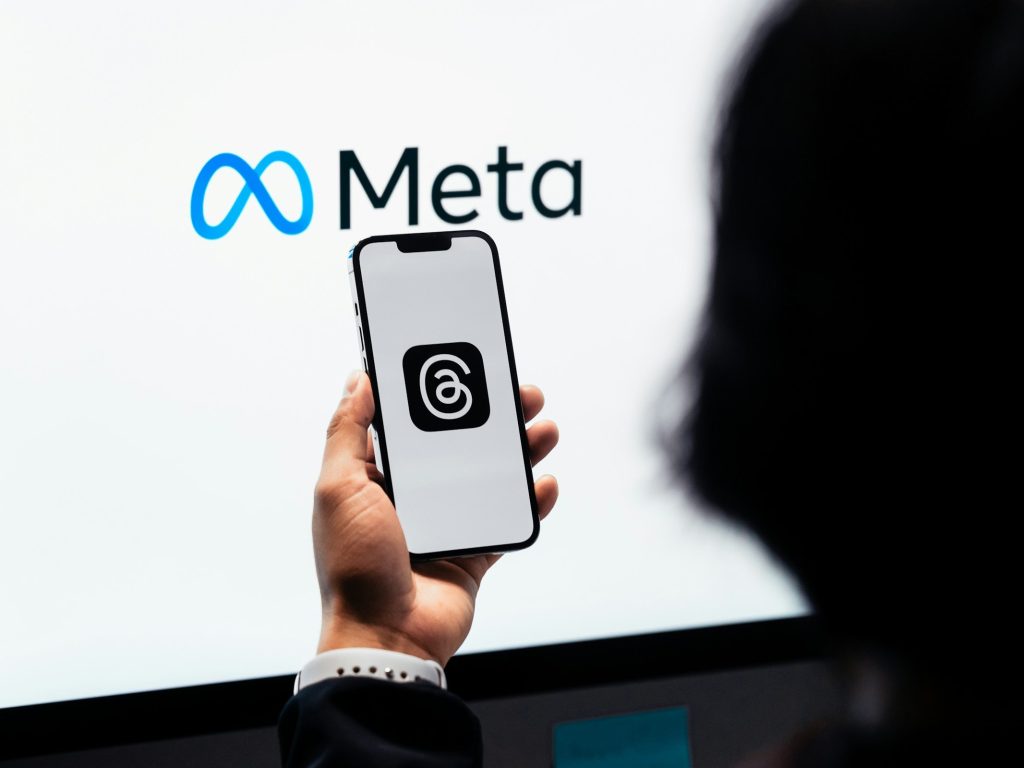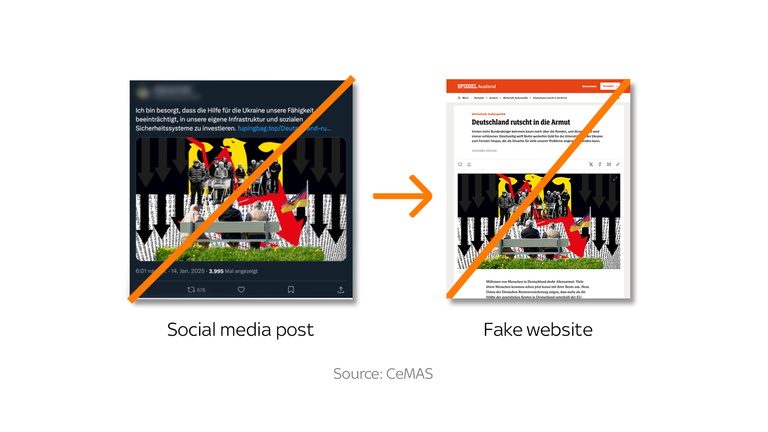Meta to Leverage EU User Data for Advanced AI Model Training
Meta’s Initiative to Use EU User Data for AI Training
Meta has announced its intention to utilize content shared by adult users within the European Union (EU) to enhance its AI models. This move follows the recent introduction of Meta AI features in Europe, aiming to improve the capabilities and cultural relevance of its AI systems for the region’s diverse audience.
In an official statement, Meta indicated, “Today, we’re announcing our plans to train AI at Meta using public content – like public posts and comments – shared by adults on our products in the EU. People’s interactions with Meta AI – such as questions and queries – will also contribute to training and refining our models.”
Starting this week, EU users of Meta platforms including Facebook, Instagram, WhatsApp, and Messenger will receive notifications to explain how their data will be used. These notifications will be available both in-app and via email, detailing the types of public data involved and providing a link to an objection form. “We have made this objection form easy to find, read, and use, and we’ll honor all previously received and newly submitted objection forms,” the company stated.
Importantly, Meta specified that certain types of data will not be utilized for AI training. The company reassured users that private conversations with friends and family would remain excluded from being used to train its generative AI models. Additionally, data associated with accounts belonging to individuals under the age of 18 in the EU will also be excluded from training datasets.
Developing EU-Centric AI Tools
This initiative is positioned as a crucial step towards developing AI tools specifically tailored for EU users. Following the launch of AI chatbot functionality across its messaging apps last month, Meta views this data usage as an essential phase in enhancing its services. “We believe we have a responsibility to build AI that’s not just available to Europeans but is actually designed for them,” the company explained. This encompasses everything from dialects and local knowledge to the unique ways humor and sarcasm are used in different countries.
As AI models advance with multi-modal capabilities encompassing text, voice, video, and imagery, such adaptations become increasingly important. Meta highlighted that its actions in the EU align with broader industry practices, noting that training AI on user data is common. “The kind of AI training we’re conducting is not unique to Meta, nor will it be unique to Europe,” they stated, referencing similar approaches taken by companies like Google and OpenAI.
Regulatory Compliance and Transparency
Meta expressed confidence in its approach, stating that it is more transparent than many of its competitors. The company also emphasized its commitment to regulatory compliance, mentioning previous engagements with regulators, including a delay last year to clarify legal requirements. Moreover, they cited a favorable opinion from the European Data Protection Board (EDPB) in December 2024, affirming that their initial approach met legal standards.
Concerns About Privacy and Public Data
Despite Meta’s transparency claims, the practice of using extensive amounts of public user data from social media platforms for training large language models and generative AI has sparked significant concerns among privacy advocates. One contentious issue lies in the definition of “public” data. Users sharing content on platforms like Facebook or Instagram may not have intended for it to serve as raw material for commercial AI systems that can generate new content or insights. Many individuals might share personal stories, opinions, or creative works without realizing the potential for their data to undergo large-scale, automated analysis and repurposing.
The effectiveness and fairness of an “opt-out” system compared to an “opt-in” system continues to spark debate. When the responsibility falls on users to actively decline participation—often after encountering notifications lost amidst numerous others—it raises significant questions about informed consent. Many users might overlook, misunderstand, or fail to respond to these notifications, resulting in their data being utilized by default rather than through explicit approval.
Inherent bias is another critical issue. Social media platforms tend to mirror and sometimes amplify societal biases, such as racism, sexism, and misinformation. AI models trained on this biased data risk not only replicating but also magnifying these prejudices. Though companies may implement filtering and adjustment techniques, completely eliminating bias derived from billions of data points remains a daunting challenge. AI systems utilizing European public data require careful curation to prevent the reinforcement of stereotypes or harmful generalizations about the cultures they aim to represent.
Furthermore, the dilemmas surrounding copyright and intellectual property are far from resolved. Publicly shared posts frequently contain original text, images, and videos produced by users. Utilizing this content to train commercial AI models—which could then generate competing works or derive profits from it—navigates murky legal waters related to ownership and fair remuneration. This topic is currently the subject of court battles globally involving various AI developers.
Lastly, while Meta emphasizes its transparency in comparison to competitors, the actual processes behind data selection, filtering, and their specific effects on model behavior often remain unclear. Genuine transparency would entail providing deeper insights into how particular data influences AI outputs and the measures in place to prevent misuse or unintended outcomes.
Meta’s strategy in the EU highlights the significant role that user-generated content plays as a resource for the expanding AI economy. As these practices gain traction, discussions regarding data privacy, informed consent, algorithmic bias, and the ethical obligations of AI developers are expected to intensify throughout Europe and beyond.
Reddit Sues Anthropic Over AI Data Scraping
Reddit has initiated legal action against Anthropic, alleging unauthorized data scraping related to artificial intelligence. This lawsuit highlights ongoing concerns regarding how tech companies handle user-generated content and data privacy.
The Modern ROI Imperative: AI Deployment, Security, and Governance
As companies increasingly adopt artificial intelligence, understanding the return on investment (ROI) has become crucial. This necessitates effective deployment strategies, robust security measures, and strong governance policies to ensure a successful transition.
AI Enables Shift from Enablement to Strategic Leadership
The evolution of AI has facilitated a move from merely enabling operations to enhancing strategic leadership. Organizations are now leveraging AI to refine decision-making processes and foster innovative solutions.
Tackling Hallucinations: MIT Spinout Teaches AI to Admit When It’s Clueless
In a groundbreaking initiative, a spinout from MIT is developing AI that can recognize when it lacks confidence in its responses. This advancement aims to reduce inaccuracies in AI communication and improve overall reliability.
Join Our Community
Subscribe now to receive premium content and stay updated with the latest technology news delivered directly to your inbox.
Popular Articles
- Artificial Intelligence, Machine Learning, Space: The Role of Machine Learning in Enhancing Cloud-Native Container Security – 39,364 views
- Artificial Intelligence, Finance, Logistics: Innovative Machine Learning Uses Transforming Business Applications – 14,170 views
- Applications, Artificial Intelligence, Face Recognition, Industries, Security: AI and Bots Allegedly Used to Fraudulently Boost Music Streams – 12,034 views
- Artificial Intelligence, Space, Sponsored Content: The Benefits of Partnering with Outsourced Developers – 10,365 views
Latest Updates
Stay informed with the latest developments in technology and artificial intelligence.

Tackling Hallucinations: MIT Spinout Teaches AI to Admit When It’s Clueless
Applications, Artificial Intelligence, Companies, Healthcare, Industries
Diabetes Management: IBM and Roche Use AI to Forecast Blood Sugar Levels
Applications, Artificial Intelligence, Chatbots, Companies, DeepSeek, Ethics & Society, Research, Virtual Assistants
DeepSeek’s Latest AI Model: A Step Backwards for Free Speech
Applications, Artificial Intelligence, Companies, Development, Energy, Ethics & Society, Healthcare, Industries, Telecoms
Stay updated with all our premium content and the latest tech news delivered directly to your inbox.
Form Fields
First Name: (Required)
Last Name: (Required)
Job Title: (Required)
Company Name: (Required)
Email: (Required)
Company Details
Company Size: (Required)
Company Sector: (Required)
Country Selection
Country: (Required)
Permissions
By submitting your email, you agree to our Terms and Privacy Notice.
Validation
Comments: This field is for validation purposes and should be left unchanged.






